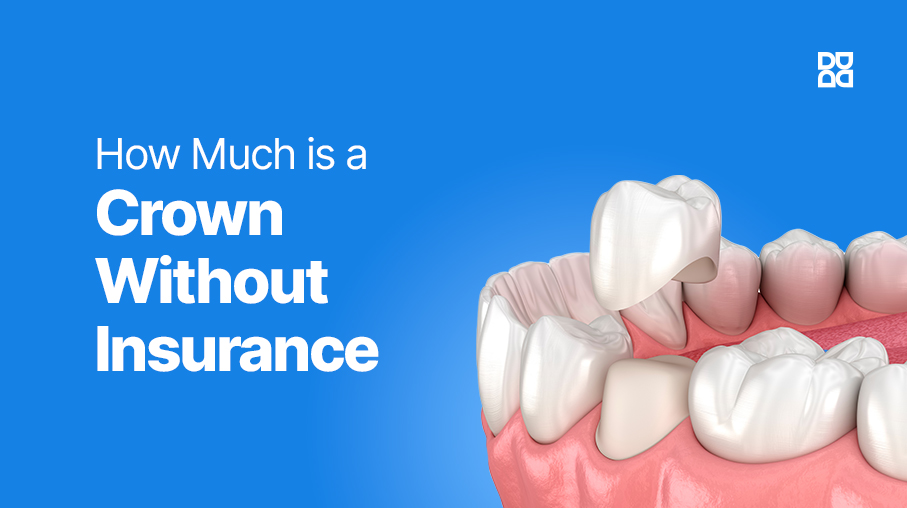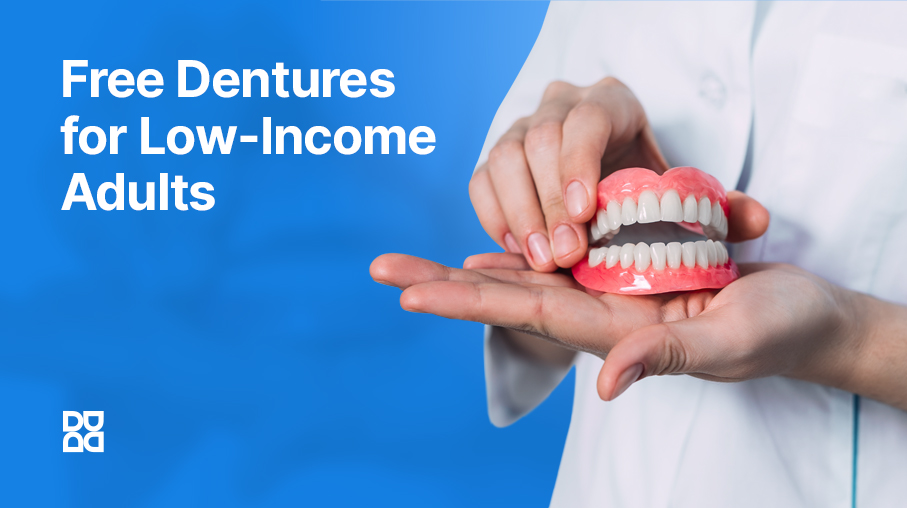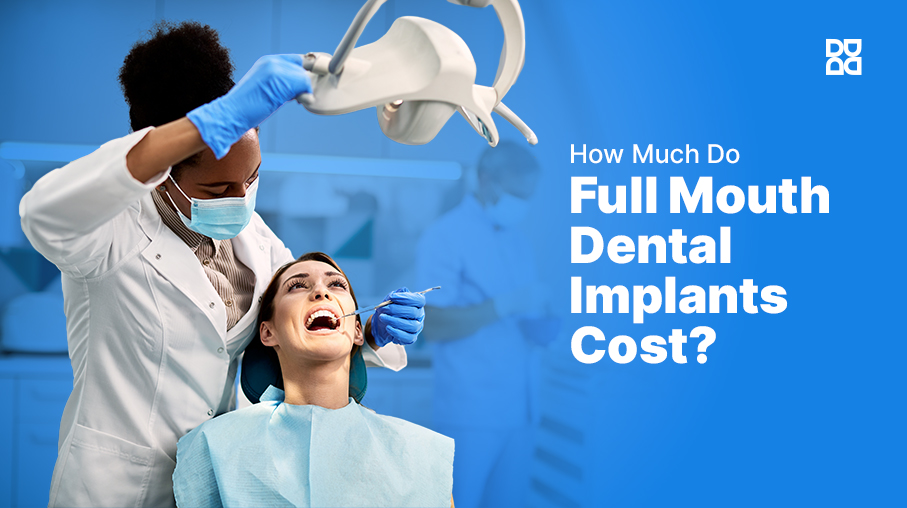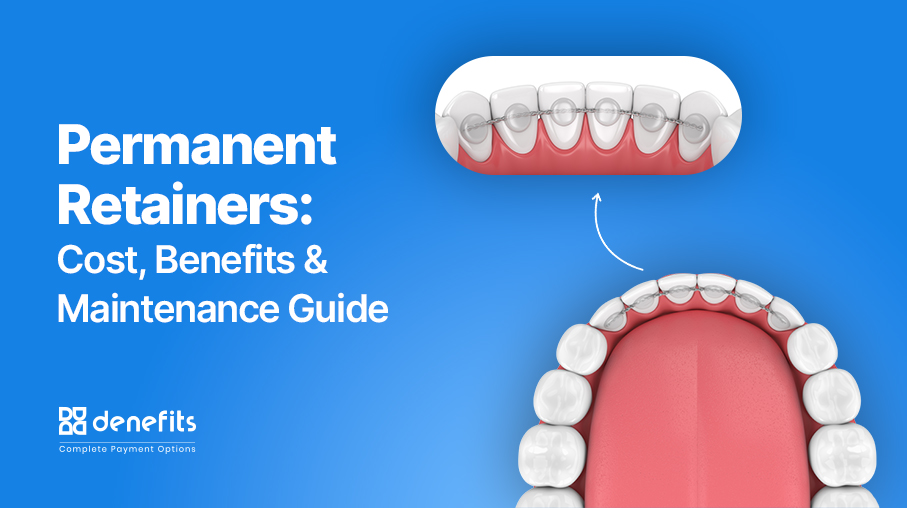
The average cost of a dental crown ranges from $500 - $3000.
When considering the financial aspect of dental procedures, one question often arises: “How much does a dental crown cost without insurance?” The expense of a dental crown can vary depending on several factors, such as the material chosen, the complexity of the procedure, and the geographic location of the dental practice. On average, the cost of a crown without insurance falls within the range of $500 to $2,200 per crown. This price does not include additional expenses like examinations, x-rays, procedural fees, and any preparatory work required before the crown is accurately positioned.
While the upfront cost may seem daunting, investing in a dental crown can ultimately preserve the life of the affected tooth, restore functionality, and enhance overall oral health and well-being. Therefore, consulting a dentist to explore potential dental financing options or payment plans can help make necessary dental treatments more accessible and manageable for those without insurance coverage.
Types of Dental Crowns and Their Cost
The cost of a dental crown depends on the material it is crafted with. Most crowns consist of these materials:
1. Porcelain: Porcelain crowns offer aesthetic results and they are used for front teeth.
2. Zirconia: Zirconia is a type of ceramic that is stronger, lasts longer and causes less wear on the enamel of surrounding teeth. Zirconia is preferred for crowns on molars because of its durability and strength.
3. Porcelain fused to metal (PFM): A PFM crown is a strong, natural-looking option. These crowns can be placed anywhere in the mouth.
4. Gold: A gold dental crown is durable and rarely chips or breaks. These crowns are extremely strong and can last long.
| Porcelain Crown | Zirconia Crown | Porcelain Fused to Metal (PFM) | Gold Crown | |
|---|---|---|---|---|
| Avg. Cost (per tooth) | $1,300 | $1,500 | $1,100 | $3,000 |
| Material Composition | Made entirely of porcelain, providing a natural tooth-like appearance | Created from zirconia, a durable and tooth-colored material | Consists of metal alloys covered by porcelain | Made from gold alloy known for its durability and biocompatibility, best suited for posterior teeth |
| Strength and Durability | Prone to chipping or fracturing, especially under heavy biting forces | Highly durable and resistant to chipping or fracture, suitable for posterior teeth and patients with bruxism | Offers moderate strength, but the porcelain layer may chip over time | Exceptionally strong and resistant to wear, making it ideal for high-stress areas like molars |
| Aesthetic Appearance | Provides excellent aesthetics, mimicking the natural teeth | Offers natural-looking aesthetics, closely resembling tooth enamel | Provides good aesthetics | Less aesthetic compared to tooth-color |
| Biocompatibility | Biocompatible and suitable for patients with metal allergies. | Biocompatible and hypoallergenic, making it suitable for patients with metal allergies | May cause allergic reactions in patients sensitive to metal components | Highly biocompatible, rarely causing allergic reactions |
| Preparation and Fitting | Preserves natural tooth structure, and requires minimal tooth reduction for placement | Requires moderate tooth reduction to accommodate the material's thickness and ensure proper fit | Similar tooth reduction as zirconia crowns, with additional space needed for the metal substructure | Requires minimal tooth reduction, providing a precise fit and long-term stability |
How Much Does a Tooth Crown Cost With Insurance?
Dental insurance helps pay for crowns, but usually not for cosmetic reasons. Tooth crown cost with insurance averages $1300 per tooth, depending on the type of material used for restoration. With dental insurance, they typically pay half of the cost for a crown, and you pay the other half.
What Are My Payment Options With Dental Crowns?
Paying everything upfront can be hard for some people, but getting dental crowns is important to restore the affected tooth. So, here are some ways you can pay for them:
1. FSA & HSA
A Health Savings Account (HSA) and a Flexible Spending Account (FSA) offer ways to save money for dental crowns. With both HSA and FSA, you can save funds with contributions from your employer. Unlike HSA, FSA requires you to spend all the funds by the end of the year. Both options can help finance your dental treatments and maintain a healthy smile.
2. Dental Schools
Dental schools offer a convenient and affordable way to get dental crowns. The students perform the procedure under the guidance of their professors. You can contact the regional dental school and book an appointment.
Consider Flexible Payment Plans for Dental Crowns
Flexible payment plans can be a lifesaver when financing dental crowns. The most significant advantage they provide is avoiding paying upfront; you can divide the cost into affordable monthly payments. This not only eases the financial burden but also allows you to budget more effectively. Plus, with flexible payment plans, you can still receive the dental treatment you need without delay. It's a win-win situation that ensures you can maintain your oral health while getting the flexibility you need.
Another great option to finance your dental crowns is via - a deferred interest payment plan. This plan allows you to make payments without interest for a specified period. The primary advantage of this plan is that if the payment is completed within the incentivized period, no interest accrues on the remaining payments.
How Much Are Crowns?
The cost of dental crowns varies in the region and depends on factors like surgeon’s fees, dental facility, and other additional costs. Let’s look at dental crown costs in various US states and major countries worldwide.
Average Cost of a Tooth Crown - State-Wise Breakdown
The price of a tooth crown in the U.S. changes depending on where you are. This is because some places have higher living costs and more competition among dentists. So, the costs can be different in each state. It's best to talk to a dentist near you to find out how much it will cost for your crown. They can give you the most accurate estimate based on where you live and what you need for your teeth.
| Location | Avg. Cost of Tooth Crown |
|---|---|
| Boston, MA | $800 - $1,800 |
| Chicago, IL | $900 to $3,000 |
| Dallas, TX | $1,000 – $1,600 |
| Denver, CO | $500 – $2,200 |
| Fairfield, CT | $800 – $2,000 |
| Harrison, AR | $600 – $1,500 |
| Indianapolis, IN | $600 – $1,300 |
| Iowa City, IA | $700 – $3,000 |
| Las Vegas, NV | $500 – $3,000 |
| Louisville, KY | $1,100 – $1,900 |
| Miami, FL | $500 – $2,500 |
| Nashville, TN | $1,200 – $2,000 |
| New York City, NY | $1,500 to $4,000 |
| Oklahoma City, OK | $1,300 – $2,200 |
| Philadelphia, PA | $600 – $1,600 |
| Portland, OR | $800 – $1,700 |
| San Jose, CA | $700 – $2,300 |
| Seattle, WA | $800 – $2,200 |
| Washington DC | $800 – $2,500 |
| West Virginia | $000 – $2,500 |
Note: The cost does not include X-rays, pre-op tests, and other additional examinations. Kindly consult your dentists for accurate costs.
How Much Do Dental Crowns Cost in Major Countries?
Dental crown costs vary in major countries due to healthcare systems and living standards. In the US, the dental crown cost is higher ranging from $500 to $2,500. Whereas, in countries with lower living costs like Mexico and India, prices can be as low as $500 to $800 per crown. It's important to consult local dentists for accurate estimates.
| USA | India | Thailand | Turkey | Mexico | Australia |
|---|---|---|---|---|---|
| Avg. Cost of Porcelain Crowns | |||||
| $2500 | $700 | $800 | $500 | $400 | $1,200 |
| Avg. Cost of Porcelain Fused to Metal Crowns (PFM) | |||||
| $1500 | $500 | $600 | $350 | $300 | $900 |
| Avg. Cost of Gold Crowns | |||||
| $3000 | $300 | $500 | $800 | $800 | $2500 |
| Avg. Cost of Zirconia Crowns | |||||
| $2500 | $1800 | $600 | $300 | $800 | $1700 |
Preparing for Dental Crowns
The steps involved in getting front teeth crowns involve:
Step 1: Examination & Crown Designing
On your first visit, an X-ray will be taken to examine the affected tooth. After a thorough examination and checking for any pulp infection, the mode of treatment is decided further.
Step 2: Taking Tooth Impressions
The dentist will take an impression of the tooth to receive the dental crown. Once the patient decides on the crown material, the dentist will color-match the tooth to blend in with the patient’s natural teeth.
The tooth is worked upon in the dental laboratory and the patient’s mouth is fixed with a temporary crown.
Step 3: Dental Crown Placement
The temporary crown is removed and the new tooth is checked for fit and color.
If things go as planned, the new crown is cemented into the place.
Aftercare Routine for Dental Crowns
Caring for your front tooth crown is no easy feat. Here are some suggestions for taking care of your dental crowns.
➡️ Avoid sticky and chewy foods such as chewing gum and caramel.
➡️ Abstain from consuming hard foods, such as carrots and popcorn kernels.
➡️ Avoid eating hard nuts.
➡️ Brush your teeth two times every day and floss once daily.
➡️ Use an antibacterial mouthwash to keep dental plaque away.
➡️ Regular dental cleanings and exams are recommended.
5 Major Problems With Dental Crowns & How to Overcome Them
Metal teeth like other dental crowns are prone to problems like decay and damage. Let's talk about these problems and how to fix them easily.
1. Sensitivity: Dental crown placement may cause tooth sensitivity to hard or cold things. However, the sensitivity should go away with time; avoid consuming extremely hot or cold foods and beverages until the sensitivity lessens.
2. Damaged crown: Crowns can be damaged by bruxism (teeth grinding) or biting hard objects, leading to discomfort and potential replacement. Wear a mouthguard at night to protect against teeth grinding and avoid biting into hard objects.
3. Tooth decay: Poor oral hygiene can cause decay around crown corners, requiring regular dental care to prevent further decay. Maintain good oral hygiene by brushing twice daily and flossing regularly.
4. Allergic reactions: Some individuals may develop allergic reactions to metal crowns, resulting in inflammation. Before getting crowns, discuss potential allergies with your dentist and opt for zirconia or porcelain crowns.
5. Gray gums: The gum line appears grayish due to metal crowns. Materials like ceramics offer a more natural aesthetic and do not cause graying of gums.
In Summary
In summary, navigating the costs of dental treatments like crowns can be challenging, especially without insurance coverage. However, alternative financing options such as those provided by Denefits offer a lifeline for individuals seeking dental care without upfront financial strain.
Denefits' flexible payment plans allow patients to spread the cost of treatments over time, making dental procedures more accessible and manageable. So, whether it's a porcelain crown, zirconia crown, or any other dental need, exploring payment options like Denefits can pave the way for healthier smiles.
FAQs - Your Dental Crown Cost Questions Answered
Q1. How Much Does a Dental Crown Cost in the USA?
The price of a dental crown can vary from $500 to $3,000 per tooth, depending on the material used.
| Material | Average Cost Per Tooth |
|---|---|
| Porcelain crowns | $500 to $1,300 |
| Porcelain fused to metal (PFM) crowns | $400 to $1,100 |
| Metal crowns, including gold alloy | $1,000 to $3,000 |
| Zirconia crowns | $600 to $1,500 |
Q2. How Much Is a Crown Without Insurance?
With dental insurance, the cost of a crown usually falls between $500 and $1,500 on average. The price can vary based on factors like the material of the crown, how experienced your dentist is, and the specifics of your dental insurance plan.
Q3. What Types of Dental Crowns Are There?
Dental crowns come in various types, such as ceramic, zirconia, gold, or porcelain-fused-to-metal crowns.
Q4. Zirconia Vs PFM and Zirconia Vs Gold Crown, Which Is a Better Option?
Here's a comparison table highlighting the key differences between zirconia vs porcelain-fused-to-metal (PFM) crowns, as well as zirconia vs gold crowns:
| Factors | Zirconia Crown | Porcelain-Fused-to-Metal (PFM) Crown | Gold Crown |
|---|---|---|---|
| Durability | Highly durable, resistant to fracture and wear | Durable, but may wear over time; risk of chipping or cracking porcelain layer | Exceptionally durable, minimal wear on opposing teeth |
| Aesthetics | Excellent aesthetics, closely resembling natural teeth due to translucent properties | Aesthetically pleasing, but may show metal margin over time | Less aesthetically pleasing due to the gold color |
| Biocompatibility | Biocompatible, suitable for individuals with metal allergies | Metal components may cause allergic reactions in some individuals | Biocompatible, rarely causes allergic reactions |
| Strength | Very strong and resilient | Strong, but potential to chipping | Highly durable and resistant to wear |
| Cost | Moderately expensive | Generally less expensive than zirconia | Often more expensive than zirconia or PFM |
This table provides a concise comparison of the main features and characteristics of zirconia, PFM, and gold crowns, helping individuals make informed decisions based on their preferences, functional needs, and budget considerations.
Q5. How Does One Go About Obtaining a Tooth Crown?
A dental crown is placed by examining the affected tooth, taking the impressions, fabricating the tooth in a lab, and then placing it on the prepared tooth.
Q6. Is the Cost of Dental Crowns Covered By Insurance?
Dental insurance coverage for dental crowns varies depending on the provider. Certain insurance plans might cover a portion of the expense, while others might not provide coverage at all.
Q7. What Are the Financing Options Available for Dental Crown Costs?
Yes, there are. If you don’t have insurance, Denefits offers flexible payment plans to meet your dental crown needs.
Q8. Can Dental Crowns Be Paid for Using FSA and HSA Funds?
Yes, dental crowns are generally classified as eligible medical expenses under both FSAs and HSAs. Nevertheless, it's advisable to verify this information with your dentist or healthcare provider.
Q9. What Is the Typical Lifespan of Dental Crowns?
The durability of dental crowns can vary, lasting from 5 to 15 years on average. Several factors influence their longevity, including the material chosen for the crown, its strength, and durability. External factors like habitual teeth clenching or nail-biting, as well as personal dental hygiene habits, also play a role in determining how long a crown will last.
Q10. How Much Does a Zirconia Crown Typically Cost?
The zirconia crown price ranges from $500 to $2000.
Q11. How Much Does a Metal Crown Tooth Cost?
Metal dental crowns are priced between $800 to $2,500.
Q12. Is White Crown Tooth Expensive?
The price of a white tooth crown can vary based on the chosen material, typically ranging from $500 to $2,200 per crown. Additional expenses such as exams, x-rays, procedural fees, and preparatory work may also apply before the crown placement procedure.
Q13. What Does a Tooth Crown Look Like?
A tooth crown is hollow from the inside and when placed over the prepared tooth, it takes its shape.
Q14. What About Crown Replacement? Can a Dental Crown Be Replaced?
Yes, dental crowns can be replaced. It is best to consult your dentists for crown replacement options.


